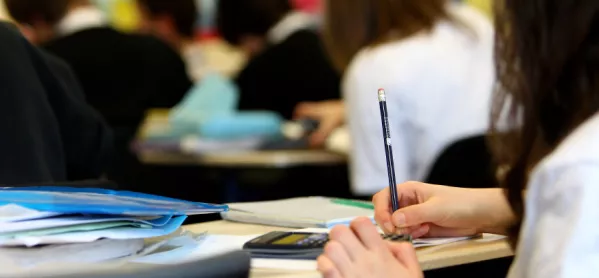- Home
- ‘The latest plans for free schools still aren’t good enough - and here’s why’
‘The latest plans for free schools still aren’t good enough - and here’s why’

On Wednesday, Tes reported that as part of the Social Mobility Action Plan, the Department for Education would target free schools at underperforming areas and create some new non-mainstream free schools, such as specialist maths schools. It’s welcome news that the free schools’ programme will now become more focused, rather than schools being set up ad hoc. However, the changes still don’t quite hit the mark. There is a risk some local authorities will find that the changes add to the financial burden of responding to pupil place needs.
There are better ways of reforming the free schools programme. An increased focus on school place shortages would ensure that the system works for local government, school providers and most importantly pupils.
Problems with the current plan
At the moment, there are two main routes for creating free schools. The first is the ”central” route, where would-be providers apply directly to central government. The second is known as the “presumption” route and involves local authorities running a competition to find a free school provider in response to a shortage of places.
Under the “central” route, the government puts forward funds with the DfE itself forking out for capital expenses. In contrast, the “presumption” route shifts the cost to local authorities as the Department’s guidance explains: “[Local authorities are] responsible for providing the site for the new school and meeting the associated capital costs… The department will provide a one-off payment of £25,000 to the successful proposer for the legal costs associated with establishing a new free school through this route.”
At the moment, local authorities can avoid having to go to the trouble and expense of using the “presumption” route because a potential provider is already applying directly to central government. The planned changes to the free schools programme could jeopardise this because, in some areas, providers may not be able to apply directly to central government if they want to set up a mainstream free school. More local authorities would then have to rely on the “presumption” route to meet the demand for pupil places. This could cause real problems for cash-strapped local authorities.
On the other hand, it’s encouraging to see that central government funding will be used to create more special schools and alternative provision. Pupil places in these schools are much needed and providing excellent school places is exactly what the free schools’ programme should be all about.
Yet the decision to prioritise specialist maths free schools seems at odds with this. These schools are selective - only pupils who are identified as having specialist maths potential will be given a place. They are therefore unlikely to make much of a difference to the most acute shortages.
A better mix
A combination of the “central” and “presumption” free school delivery routes could be made to work. Central government funding could be used solely for free schools in areas with a shortage of pupil places. Local authorities could collaborate with central government to advertise requirements to potential providers and then a competition could then be held. That way, any providers applying to central government would know that their free school was needed and that they were likely to fill their places. This would ensure that all schools were financially viable, something that is not currently the case.
Local authorities could rest easy too, knowing that they have fulfilled their duty to provide sufficient pupil places, without being crippled by the cost. Meanwhile, central government could show that it was fulfilling its pledge to facilitate educational innovation. Most importantly though, parents and young people would know that much-needed pupil places and new schools were being created.
A model for such an approach already exists. Earlier this year, a special free schools route was rolled out. It saw 20 local authorities given permission to commission special schools. Central government will cover the capital expenditure for these schools and local authorities can review and recommend suitable providers to the Department for Education. This collaborative approach means that both central and local government use their resources and expertise to guide providers in setting up the schools our communities need.
Free schools and school improvement
Unlike the planned changes to free school delivery routes, these changes would not specifically target free schools at underperforming areas like the North of England and the Midlands. But are free schools the engines of school improvement that these areas need? Probably not.
The free school programme is simply a vehicle for creating new schools. Free schools can come in different shapes and sizes, with different practices. They vary in quality, like any other school type. It is odd to expect the mere existence of a free school to improve the quality of education on offer and result in enhanced social mobility. Of course, some free schools have had great success, but that is probably not just because they are free schools.
I am not suggesting that underperforming areas should be deprived of new free schools, merely that free schools should be created in these areas when there is a real demand for places.
The planned changes to free school delivery routes show that the government is starting to slicken the programme. However, there still needs to be a greater focus on pupil place planning. Will that happen? Only time will tell.
Kate Bowen-Viner is an associate at the education and youth “think and action-tank”, LKMco.
Want to keep up with the latest education news and opinion? Follow Tes on Twitter and Instagram and like Tes on Facebook
Keep reading for just £1 per month
You've reached your limit of free articles this month. Subscribe for £1 per month for three months and get:
- Unlimited access to all Tes magazine content
- Exclusive subscriber-only stories
- Award-winning email newsletters
